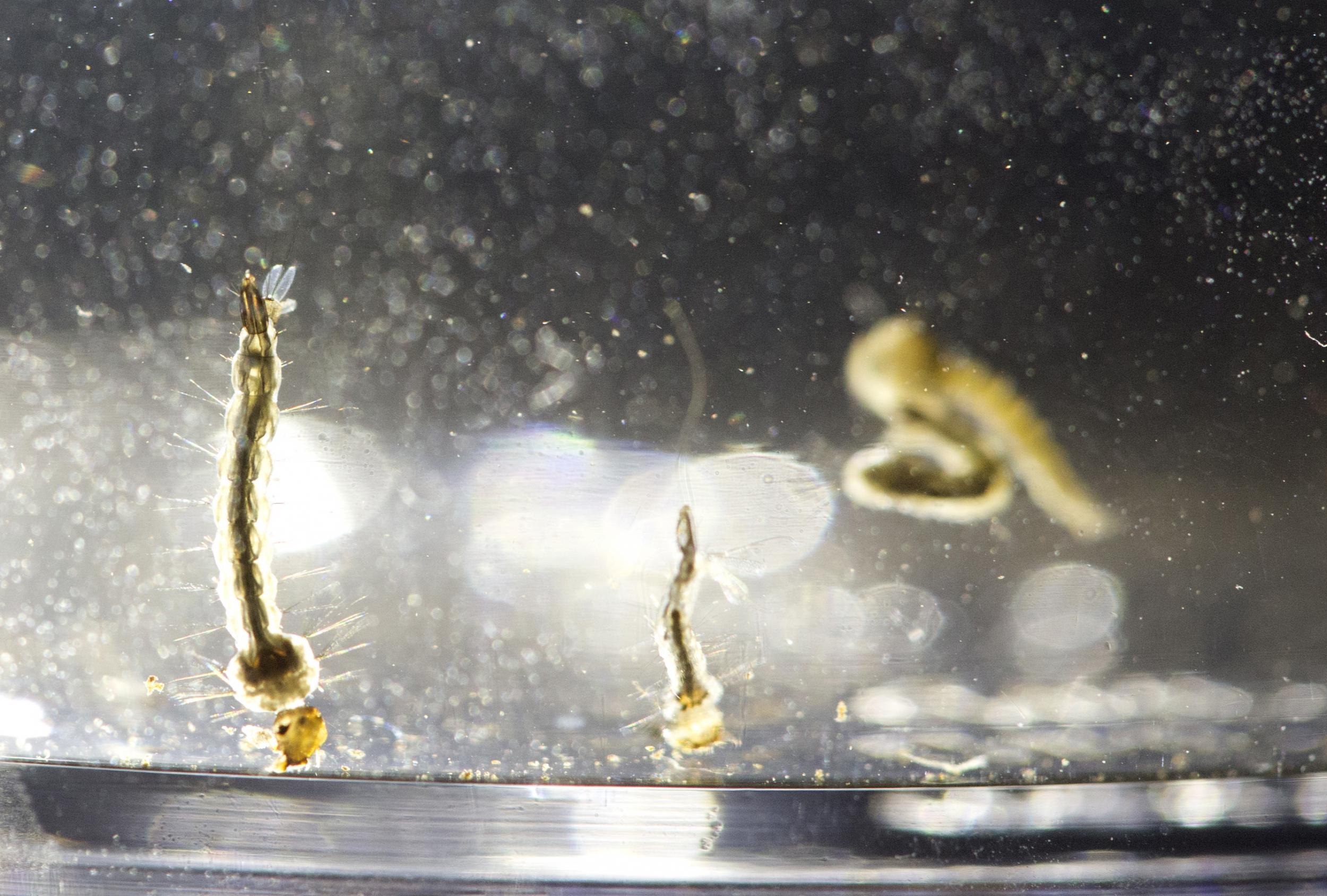Zika outbreak: It's official. Mosquitoes found to be carrying virus in Florida
Health authorities say disease was detected in three groups of insects caught on Miami Beach

Authorities in Florida say they have found the Zika virus in three groups of mosquitoes trapped on Miami Beach, the first time this has happened in the continental US.
The Zika-carrying mosquitoes were caught in a touristy 1.5-square-mile area of Miami Beach that had been identified as an active zone of transmission of the virus, according to the Florida Department of Agriculture and Consumer Services.
“This find is disappointing, but not surprising,” said Adam Putnam, commissioner of agriculture. “Florida is among the best in the nation when it comes to mosquito surveillance and control, and this detection enables us to continue to effectively target our resources.”
Finding the virus in mosquitoes has been likened by the US Centres for Disease Control to finding a needle in a haystack, but the testing helps mosquito controllers target their efforts, and it confirms that the insects are indeed a mode of transmission as suspected.
The illness spreads from people to mosquitoes to people again through bites, but the insects do not spread the disease among their own population, and their lifespan is just a few weeks.
Since July, authorities have linked a couple dozen cases to transmission in small areas of Miami's Wynwood district and the popular South Beach neighbourhood of Miami Beach.
Other isolated cases not linked to travel outside the US also have been confirmed elsewhere in Miami-Dade county, as well as in neighbouring counties and in the Tampa Bay area, totalling 47 for the state.
Mr Putnam said Miami-Dade County, the City of Miami Beach, and state and federal partners were continuing to work aggressively to prevent the spread of Zika.

The agency says Miami-Dade County's Mosquito Control team will continue to conduct inspections to reduce mosquito breeding and perform spraying around in a 1/8-mile radius around the area where the infected batches of mosquitoes were trapped.
Officials said 95 more mosquito samples — each one containing several dozen bugs — tested negative since those three were found. Intensive trapping and testing is continuing across the region.
Carlos Gimenez, mayor of Miami-Dade county, said: “As it has been from the beginning, our goal is to eliminate the cycle of transmission by eliminating the mosquitoes."
Philip Levine, mayor of Miami Beach, added: "We are aggressively working to eliminate any and all potential mosquito breeding grounds. We need Congress to do its part to provide the necessary emergency resources to properly combat the spread of this virus."
Join our commenting forum
Join thought-provoking conversations, follow other Independent readers and see their replies
Comments
Bookmark popover
Removed from bookmarks